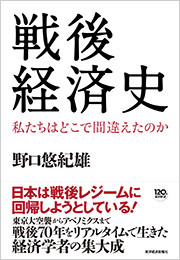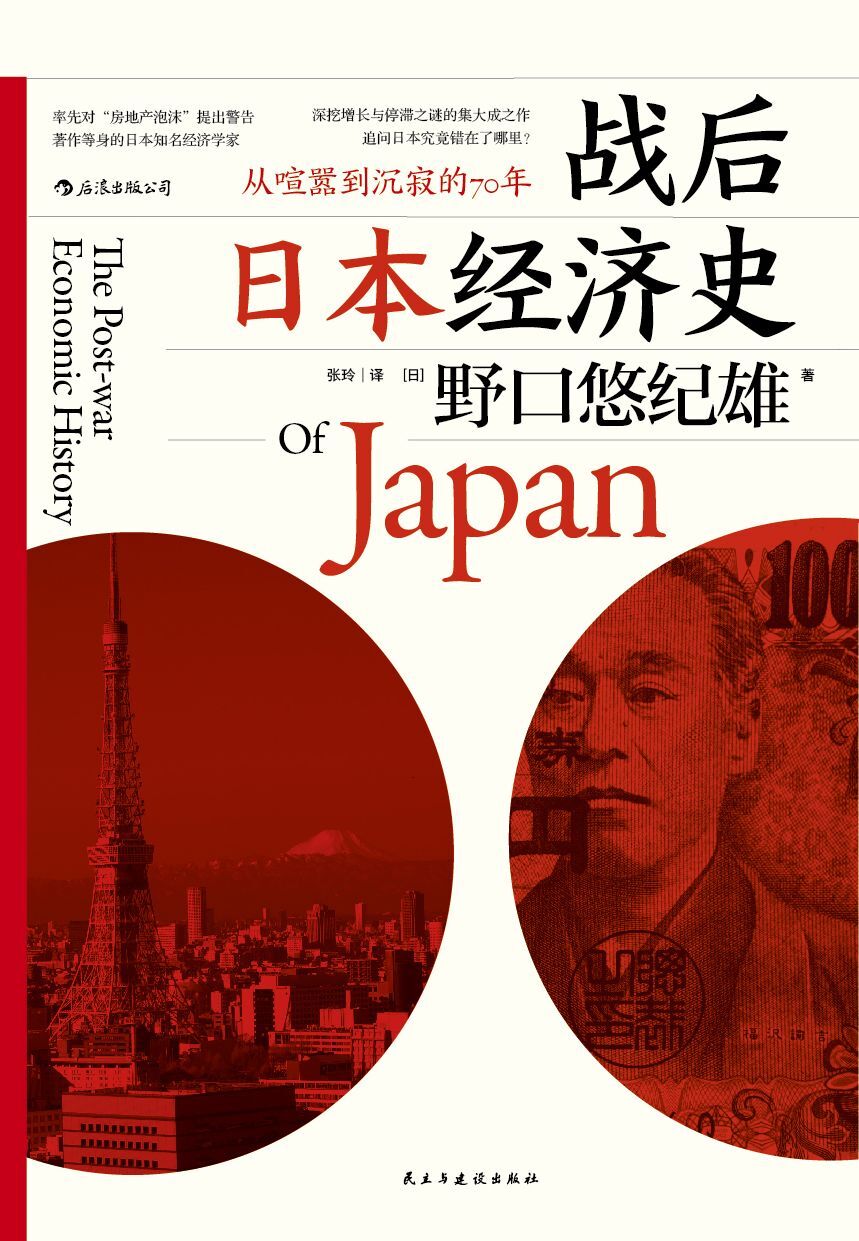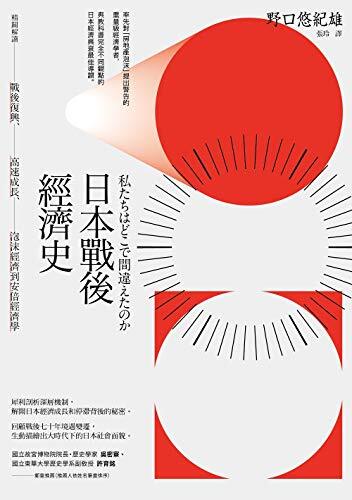Economic History of Japan after the Pacific War
In this unique economic book, Yukio Noguchi, one of Japan’s leading economists, tells the story of postwar economic history along with many of his own experiences.
He describes the transformation of the Japanese economy from both his personal viewpoint and the larger perspective of an economist.
The Tokyo air raid at the age of four is his first memory, and he spent his boyhood in the postwar reconstruction period.
In 1964, he joined the Ministry of Finance and studied in the United States.
He has experienced the bubble economy in the 1980s and globalization in the 1990s and 2000s.
The author points out that “while the Japanese economy has achieved dynamic growth and maturity, it still retains a wartime economic system (the 1940 system) in its economic thinking and policy measures.
Click here for inquiries regarding book rights
Overview
A must-read book for a new understanding of the Japanese economy 70 years after the end of the Pacific War.
It has become a hot topic in Japan, and it is read more in China than in Japan.
Table of Contents
Prologue
Chapter 1: The Wartime System Survives the Postwar Era 1945-1959
Chapter 2: Why High Growth Was Possible? 1960-1970
Chapter 3: The Corporate Family Defeats the Oil Shock 1971-1979
Chapter 4: The 80’s, The Gilded Age 1980-1989
Chapter 5: Collapse of Bubble Economy and the 1940 System 1990-1999
Chapter 6: The World Has Left Japan Behind 1980-99
Epilogue: What Should We Do Now?
Conclusion Can We Overcome “the 1940 System in Our Minds”?
Author Profile
Yukio Noguchi
Yukio Noguchi, born in Tokyo in 1940, graduated from the Faculty of Engineering at the University of Tokyo in 1963. He joined the Ministry of Finance in 1964 and earned his Ph.D. in economics from Yale University in 1972.
After working as a professor at Hitotsubashi University, the University of Tokyo (Director of the Research Center for Advanced Economic Engineering), Stanford University, and Waseda University Graduate School of Finance, he became an advisor to the Waseda Institute of Finance in April 2011.
He specializes in finance theory and the Japanese economy.
(Information is current at the time of publishing.)



